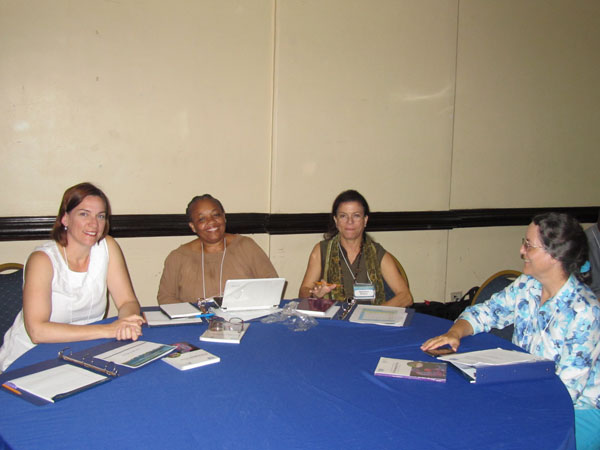 GREAT BAY (DCOMM):--- Section General Public Health (SGPH) Head Maria Henry, an entity that falls under the Collective Prevention Services (CPS), and Dr. Grace Spencer, local family physician returned over the weekend from Jamaica after attending a workshop on Chikungunya.
GREAT BAY (DCOMM):--- Section General Public Health (SGPH) Head Maria Henry, an entity that falls under the Collective Prevention Services (CPS), and Dr. Grace Spencer, local family physician returned over the weekend from Jamaica after attending a workshop on Chikungunya.
Chikungunya (CHIK) fever is an emerging, mosquito-borne disease caused by an alphavirus, Chikungunya virus (CHIKV). This disease is transmitted predominantly by Aedes aeqypti and Ae. Albopictus mosquitoes, the same species involved in the transmission of dengue.
Caribbean health officials have called on countries and territories to prepare for the introduction of CHIK into the Region, and to review present dengue response plans and adjust them to incorporate the aforementioned virus, which is more active than dengue.
The Ministry of Public Health, Social Development and Labour's Dengue Action Response Team (DART) will be incorporating CHIK into its preparedness and response plan.
CHIKV epidemics have shown cyclical trends, with inter-epidemic periods ranging from four to 30 years. Since 2004, CHIKV has expanded its geographical range, causing sustained epidemics of unprecedented magnitude in Asia and Africa.
Although areas of in Asia and Africa are considered to be endemic for the disease, the virus produced outbreaks in many new territories in the Indian Ocean islands and in Italy. This recent re-emergence of CHIKV has heightened the world's public health awareness and concern about this virus.
According to the Pan American Health Organization (PAHO)/World Health Organization (WHO), controlling the spread of anthropod-borne viruses in the Americas has not been very successful.
Dengue continues to ravage many areas in the Americas, reaching as far North as the United States and as far South as Argentina. During the first trimester of 2010, several dengue virus outbreaks in the Region occurred at unprecedented rates for this time of the year, especially in Central America and the Caribbean.
Although indigenous transmission of CHIKV does not occur in the Americas now, the risk for its introduction into local vector mosquito populations is likely higher than had previously been thought, especially in tropical and subtropical areas where Ae. Aegypti, of the main vectors of CHIKV, has a broad distribution.
Between 2006 and 2010, 106 laboratory-confirmed or probable cases of CHIKV were detected among travelers returning to the United States, compared to only three cases reported between 1995 and 2005. There also have been nine imported CHIK cases reported in the French territories in the Americas since 2006-three in Martinique, three in Guadeloupe, and three in Guyana.
To date, none of the travel-related cases have led to local transmission, but these cases document an ongoing risk for the introduction and possible sustained transmission of CHIKV in the Americas.
Family Physician Dr. Grace Spencer, is one of the physicians contributing to the local sentinel surveillance system, a weekly reporting diagnosed diseases under surveillance.